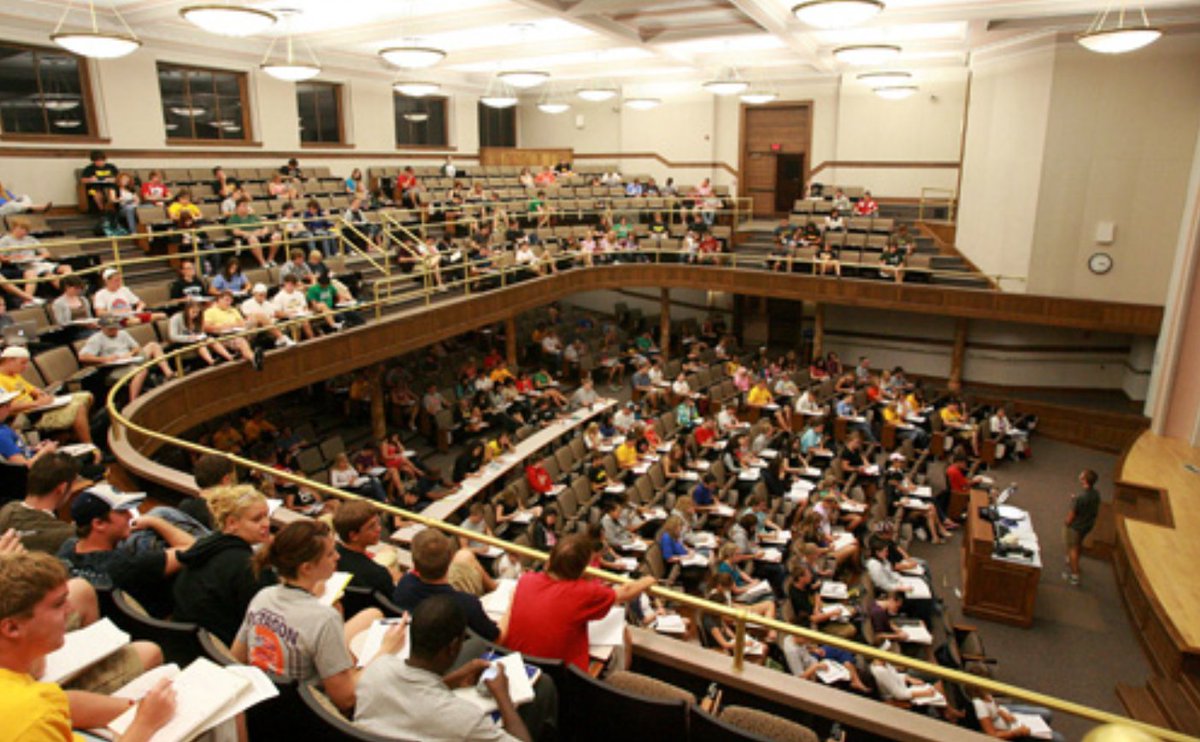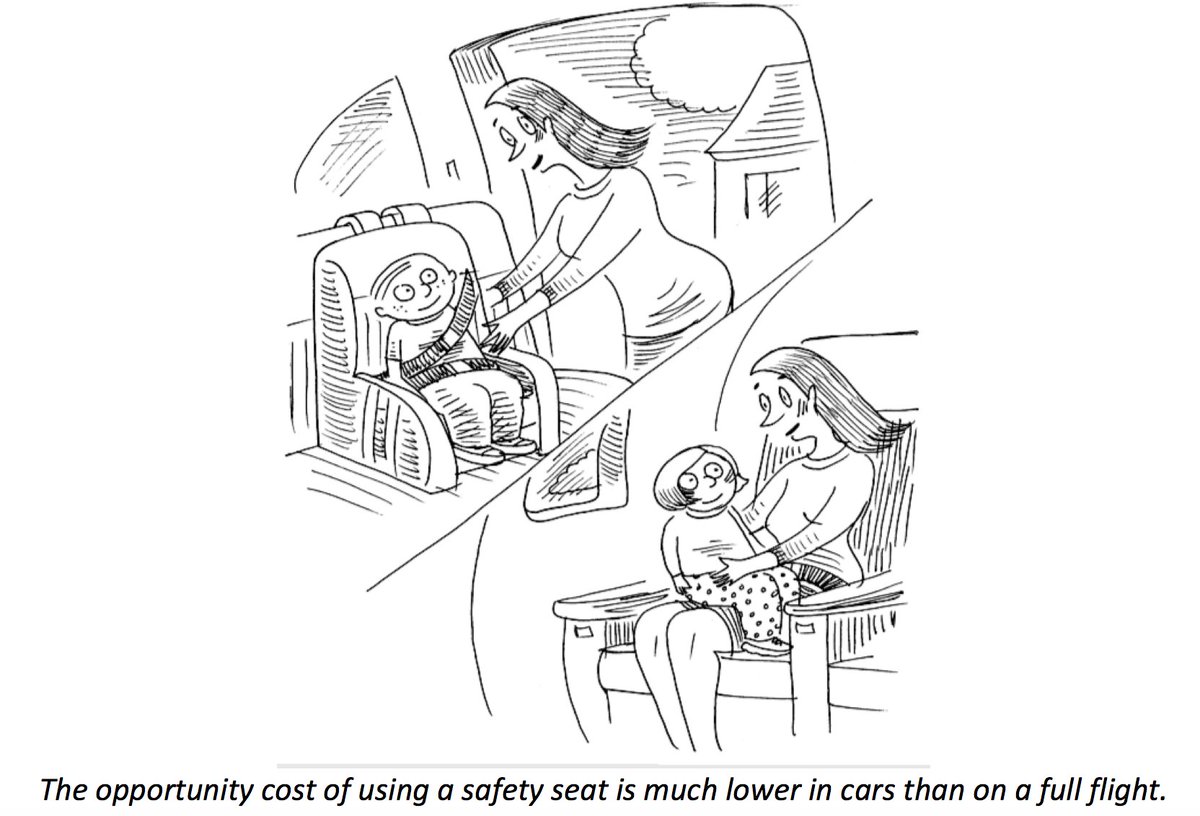Thread on introductory economics courses, which leave little lasting imprint on the millions of students who take them each year:
@stevenstrogatz @_StefRo @benbernanke @davenuss79 @DanTGilbert @JosephEStiglitz @kaushikcbasu @rodrikdani @RobertJSchiller
@stevenstrogatz @_StefRo @benbernanke @davenuss79 @DanTGilbert @JosephEStiglitz @kaushikcbasu @rodrikdani @RobertJSchiller
On tests designed to probe their knowledge of basic principles six months after having taken one of these courses, students score no better than others who have never even taken an economics course.
The principal reason for this dismal performance by dismal scientists, I believe, is that we almost always try to teach our students far too much.
Many instructors ask, “How much can I show them today?” and feel pleased with themselves when they manage to zip through more than a hundred PowerPoint slides in an hour.
But in trying to cover every idea that economists have written about during the past two centuries, all goes by in a blur for most students. By trying to accomplish less, we may accomplish far more.
In my “economic naturalist” assignment, I ask students to pose an interesting question prompted by something they had personally observed, and then use economic principles discussed in the course to craft a plausible answer to it.
An interesting question is one that makes the listener instantly curious to learn the answer. At first, students find it challenging to come up with such questions, but with practice, they get better quickly.
A good test for whether a question is interesting, I tell students, is to pose it to friends and observe their reactions. My former student Greg Balet asked, Why are child safety seats required in cars but not in airplanes?
Regulators require that toddlers be strapped into safety seats for even a two-block drive to the grocery store, yet permit them to sit unrestrained on parents’ laps on five-hour flights from New York to Los Angeles. Why this difference?
When Greg posed this question to classmates, it appeared to spark interest. And when he asked them to try answer it, the most common response he got was that if a plane crashes, everyone is likely to die anyway, so being strapped in wouldn’t matter.
But that couldn’t be the explanation, he realized, since the main reason for being restrained in flight is to reduce the risk of injury caused by severe air turbulence, which is much greater than the risk of injury from auto accidents
The greater risk posed by air turbulence explains why regulators mandated seat belts in planes long before they were required in cars.
One of the most important economic concepts I try to teach is the cost-benefit principle, which holds that an action should be taken only if its benefit is at least as great as its cost.
Greg concluded that because the benefit of being restrained is greater in a plane than in a car, the reason for not requiring toddler restraint in flight would have to lie on the cost side of the cost-benefit test.
And sure enough, that proved the key insight. Once you’ve set up a safety seat in your car, the cost of strapping your toddler in is negligible, just the few moments of effort required to do so.
In contrast, if you’re traveling across country on a full flight, strapping your toddler in would require an additional ticket, which might boost the cost of your trip by several hundred dollars or more.
Although regulators might not feel comfortable describing their thinking in these terms explicitly, the reason they don’t require toddler restraints in flight is that it would be too costly do so.
I don’t have any systematic evidence that encouraging my students to ask such questions produced a dramatic increase in their long-run mastery of basic economic principles.
But since traditional introductory economics courses appear to add no lasting value, I’m confident that my switch to that approach cannot have done significant harm, either. And there are at least some indications that it may have helped.
Many students report, for example, that when they go home for Thanksgiving break, their holiday dinner-table conversations often involve the best economic naturalist questions submitted by their classmates.
And every year during alumni reunion weekend, former students who graduated years earlier stop by my office to share questions they’ve posed and answered in the interim.

 Read on Twitter
Read on Twitter





